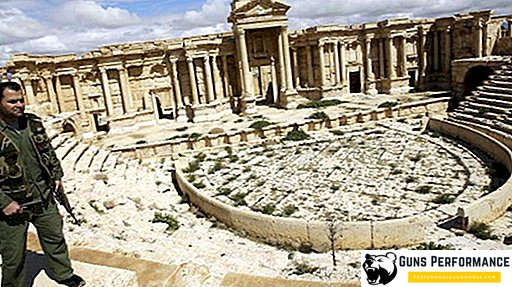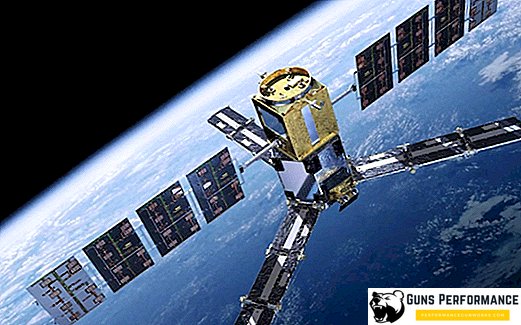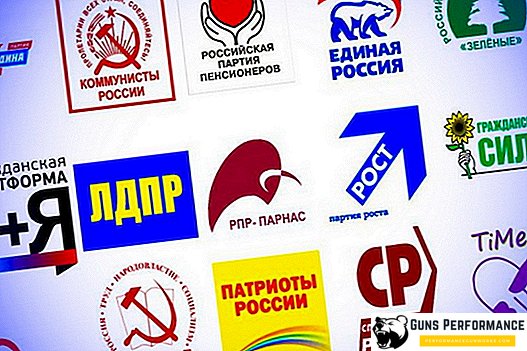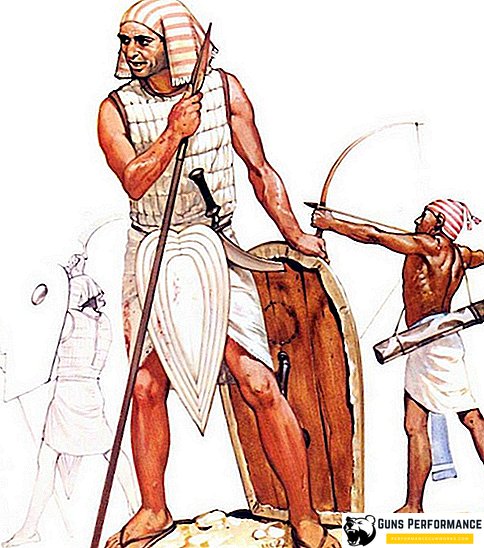
On December 8, ISIL militants (banned in Russia) launched a sudden and swift attack on the Syrian Palmyra. It took the Islamists only three days to achieve their goals. About six months ago, with the joint efforts of the Asadites and the Russian military, this city was freed from Islamic terrorists. The terrible enemy of ISIS was defeated, and domestic propagandists of various calibers did not stint enthusiastic materials on this issue.
On this occasion, the Medal "For the Liberation of Palmyra" was released, and the apotheosis of this information coven was a concert by a symphony orchestra conducted by Gergiev (he was also given a medal) right among the ancient ruins of the city. The infamous friend of Vladimir Putin, cellist and multimillionaire Sergey Roldugin also took part in it.
Today, events in Syria are taking an increasingly unpredictable turn. A few days ago, it seemed that Putin might finally feel like a winner. After long months of siege and fierce street battles, carpet bombing and countless resources spent, Aleppo is practically taken. The rebels are surrounded, the territory they control shrinks like shagreen. West requested a truce. And then Palmyra.
In 2004, the American mathematician and economist Nassim Taleb coined the new term "black swan". By this is meant any random significant event (or event) that drastically changes all the layouts. The appearance of the "black swan" cannot be predicted, it cannot be prepared for it, its consequences are most often destructive. Such a joker in the deck of events.
One gets the impression that the entire Syrian campaign is increasingly turning into a huge “black swan”.
Currently (on the evening of December 12), the igilovtsy not only took Palmyra, seizing the richest trophies in it, but continued their advance to the east of the country in the direction of Holmes, one of the largest cities in Syria, which is of great strategic importance. A government airbase has already been captured (reported by the Arab media), and several Syrian airplanes have been destroyed on the ground.

The Islamists should be given their due: these guys are fighting well, without templates, provocatively and "with a twinkle". Syrian troops are fleeing, all the combat-ready, that Assad has, is now under Aleppo. To prevent the militants to seize another piece of Syria can only their own small numbers (Arab sources say about a thousand people).
Obviously, not only the Syrian military is to blame for the disaster at Palmyra, and Russian advisers, who “overslept” the militants' preparation for the operation, are no less responsible for this defeat.
ISIS managed to seize rich trophies in Palmyra: tanks alone not less than 30 pieces, plus infantry fighting vehicles and armored personnel carriers, artillery guns, anti-tank systems, trucks and mountains of ammunition.

It turns out that only a thousand people can drastically change the whole picture of the campaign.
In fact, Palmyra is not of strategic importance, but the problem of Assad is that he simply has nothing to close the entire territory of his country. Such a "Trishkin caftan": if you want to take Aleppo, then get ready for problems elsewhere. Moreover, the Syrian army does not want to fight (with the exception of individual units), and it is unrealistic to win this war at the expense of mercenaries and Ichtamnets. It is possible that Russia would have gone to a significant increase in the ground grouping, but it simply will not be able to supply it.
Of course, you can take Aleppo (it is likely that this will happen soon), but what will it give to Assad? Several hundreds of thousands of hungry mouths that need to be maintained, and a city destroyed by months of bombardment?
And where is the guarantee that in a few months Aleppo will not repeat the current fate of Palmyra. After all, it is several times more than the last and how many people will be needed to protect the city in the future. And this war is unlikely to end with the capture of Aleppo, this is not Berlin in 1945.
The Syrian problem has no military solution. To stop the civil war and defeat his opponents, Assad needs to close the border, which, at its current position, looks fantastic.
Russia is getting bogged down in Syria. Many already call this country "second Afghanistan", but, in my opinion, the situation is more like Vietnam. And the way the Americans were drawn into this war. Everything was not there right away either. First, military aid, weapons, equipment, ammunition. Then military advisers who trained the South Vietnamese. And only then American aviation began to connect to the actions. When this did not help, regular units of the US Army were sent to the jungle of Indochina. How it ended - is well known.
Obviously, the way out for Syria, tormented by war, may be in its division into enclaves (in the form of a federation or confederation): Alawite, Sunni, Kurdish But easier said than done. The main problem of the Syrian conflict is a large number of players (both external and internal) participating in it. It is very difficult for them to come to an agreement, since their interests are sometimes opposite.
Another equally important question: who will pay for the restoration of the territories destroyed by the war?

Palmyra, most likely, will be returned. It is not known when, but will be returned necessarily. The surrender of the city looks too humiliating (after Gergiev and the distribution of medals) to leave everything as it is. Yes, and LIH, apparently, did not try to start a serious operation in the Palmyra area. Too frivolous forces were attracted. Palmyra will be released a second time, but this is unlikely to seriously change the overall situation in Syria.












